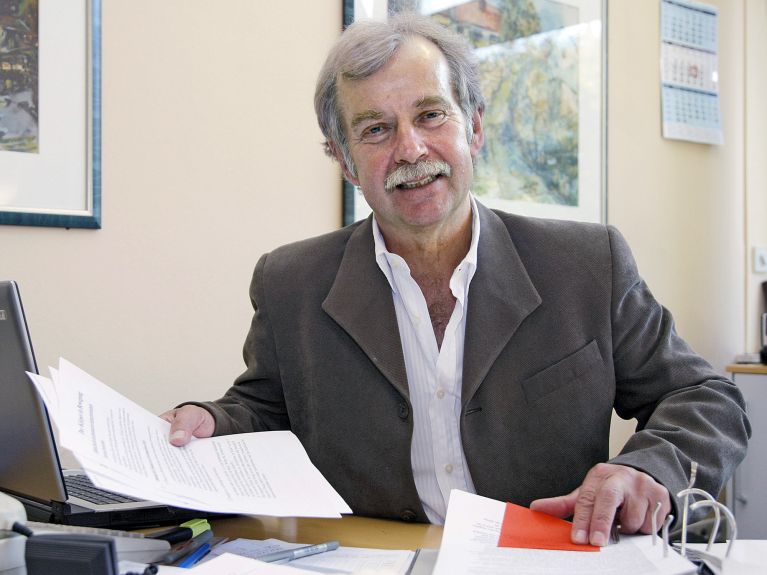Happiness as a school subject
Maths, German – and happiness. This school subject really does exist. What schoolchildren learn for life from it.

Germany. The former head teacher Ernst Fritz-Schubert developed happiness as a subject at his school in Heidelberg in 2007. Today he is passing on this concept to other teachers at his educational institute.
Mr Fritz-Schubert, what gave you this idea? Do children in Germany need to be taught how to feel happy?
At the time I had already been teaching for 30 years, and it became clear to me that children did not feel happy in the place called school. And yet it should be a school’s job to awaken and maintain the pleasure of learning – not simply to promote the achievement of academic goals. I have the feeling that school gradually stifles our curiosity. In contrast to all the insights of psychology, many teachers treat their students like ‘learning machines’ to reproduce prescribed contents. But when teachers see themselves as treasure hunters rather than fault finders, this attitude has positive effects for both sides.
I was mainly concerned about disadvantaged children who were so negatively influenced by school that they lost their enthusiasm to learn. Happiness as a school subject is designed to strengthen the personality. Numerous studies show that people who are happy and contented, argue less, are healthier, more receptive and more creative.

Teachers should be treasure hunters rather than fault finders.
What is this school subject about?
It’s about contentment and life skills – that’s the aim of happiness as a school subject. This includes finding a purpose, feeling a sense of security, social relationships, self-determined actions, self-acceptance, coming to terms with your environment, and personal development.
This can be divided up into learning steps with the help of four questions: Who am I? What do I need? What am I capable of? What do I want? The students learn to recognize their dreams and needs, and then to formulate aims and find ways of realizing them. But they also learn the meaning of failure, in other words losing. It’s important to learn early on how to deal successfully with defeat, to see it as a chance, and to be able to overcome future challenges.
What does a lesson in happiness look like?
The combination of psychological insights with practical exercises has proved very useful, creating experiences that really move people and become imprinted in their memories. One of my students described it like this: “What we learn in ethics, we put into practice through exercises in the happiness classes.”
There is a good exercise for primary school children in personal esteem: while one child is sitting, the others whisper something nice to him or her as they pass. The children learn that they experience a feeling of wellbeing when they receive compliments, and that it doesn’t feel good to humiliate others. For the senior grades I have developed the game “The Temple of Virtues”. It’s based on Aristotle’s teachings about virtues. It helps the students to develop their own profile and become aware of their own strength of character.
What effect do happiness lessons have on the students?
Accompanying studies have confirmed that they develop a stronger sense of self-esteem. They are more understanding, approach other people more openly, have greater confidence in their abilities, and pursue their goals with optimism.
How many schools have already adopted the concept?
About 40 in Germany and 140 in Austria. At the Fritz-Schubert Institute we have trained more than 500 teachers since 2009.
Happiness as a school subject: Fritz-Schubert-Institut
